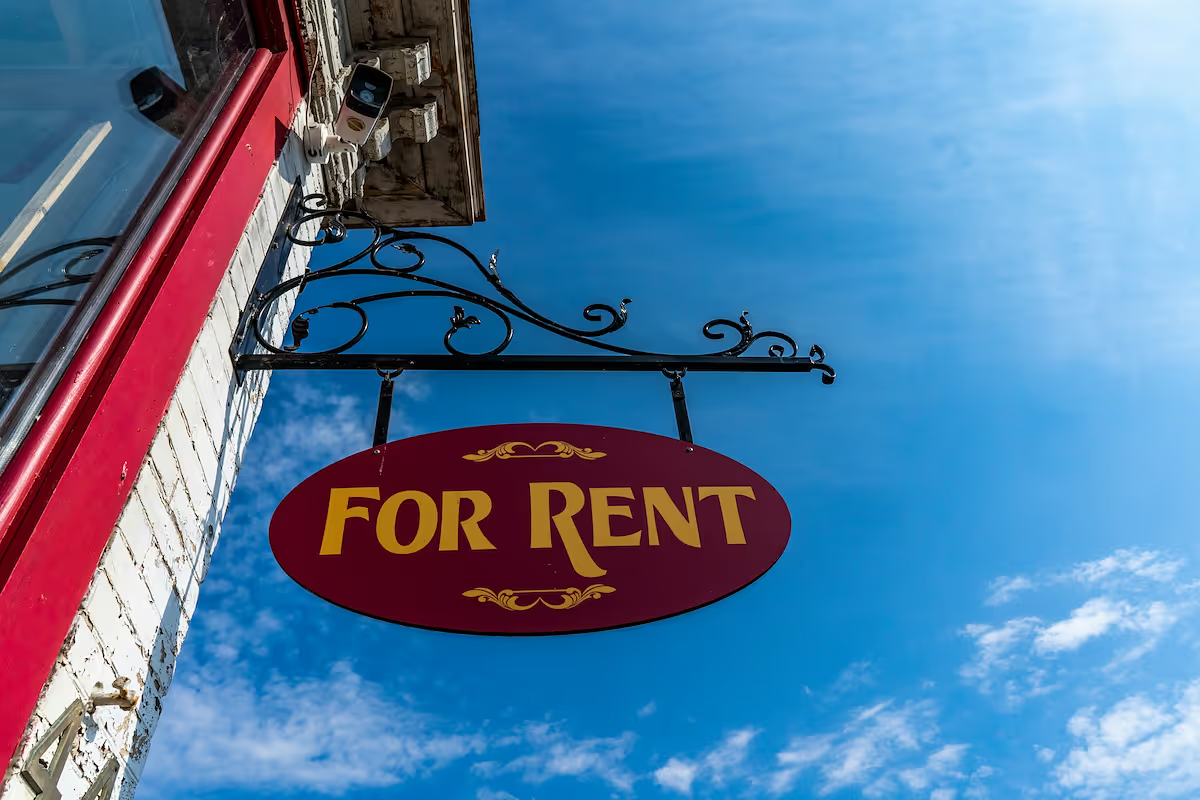
Kudos has partnered with CardRatings and Red Ventures for our coverage of credit card products. Kudos, CardRatings, and Red Ventures may receive a commission from card issuers. Kudos may receive commission from card issuers. Some of the card offers that appear on Kudos are from advertisers and may impact how and where card products appear on the site. Kudos tries to include as many card companies and offers as we are aware of, including offers from issuers that don't pay us, but we may not cover all card companies or all available card offers. You don't have to use our links, but we're grateful when you do!
Does a Late Rent Payment Affect Your Credit Score?
July 1, 2025


Quick Answers
Typically, a late rent payment will not impact your credit score, as most landlords do not report payment histories to the major credit bureaus.
However, if your landlord utilizes a rent reporting service, a late payment can be recorded on your credit file, potentially lowering your score.
Should your rent go unpaid long enough to be sent to a collections agency, this action will be reported and can cause significant harm to your credit.
What Is a Late Rent Payment?
A late rent payment occurs when a tenant does not submit their rent by the due date outlined in their lease agreement. Most rental contracts provide a grace period, typically lasting a few days, allowing payment without penalty. Once that window closes, the payment is officially delinquent, which usually results in the assessment of a late fee.
While a single late payment may not be reported, persistent or significantly overdue rent can affect a tenant's credit history. Landlords and property managers, particularly those who use rent-reporting services, can report these delinquencies to credit bureaus. A reported late payment can lower a person's credit score, which may create challenges when applying for future credit or housing.
How a Late Rent Payment Can Affect Your Credit Score
While a single late rent payment might not immediately ding your credit, it can trigger a chain of events that ultimately leads to a significant negative mark on your credit report.
- The Initial Miss: A payment that is only a few days late typically won't be reported. Your landlord will likely charge a late fee as outlined in your lease, but your credit score itself remains untouched at this point.
- Direct Landlord Reporting: An increasing number of landlords and large property management firms use rent-reporting services. If your landlord participates, a payment that is 30 or more days past due can be reported directly to the credit bureaus.
- Debt Goes to Collections: If the rent remains unpaid for a prolonged period, your landlord can turn the debt over to a collection agency. This is the most common way unpaid rent finds its way onto a credit report.
- The Credit Score Hit: Once a collection agency owns the debt, it will report the delinquent account to the major credit bureaus (Experian, Equifax, and TransUnion). A collection account is a serious negative event that can significantly lower your credit score for up to seven years.
How Much Will a Late Rent Payment Affect Your Credit Score?
The exact impact of a late rent payment on your credit score can vary. Here are a few key things to consider:
- When it's reported: A late rent payment typically isn't reported until it's at least 30 days past due. This gives you a grace period to pay before it hits your credit history and causes potential damage.
- Severity of the drop: A single late payment can cause a significant drop, potentially up to 100 points for those with high scores. The impact lessens for those with already lower credit scores or previous late payments.
- Who reports it: Not all landlords report to credit bureaus. However, if your landlord uses a rent-reporting service or a collection agency, the late payment will likely appear on your credit report.
How You Can Avoid a Late Rent Payment Affecting Your Credit Score
Proactive Landlord Communication
If you anticipate being late, speak with your landlord immediately. Many are willing to arrange a temporary payment plan or offer a short grace period. Open communication can prevent them from reporting the delinquency to credit bureaus, protecting your score from any negative impact.
Review Your Lease Agreement
Your lease is a critical document that outlines grace periods and late fee policies. Understanding these terms helps you know exactly when a payment is officially considered late, giving you a clear deadline to meet before any potential credit reporting occurs.
Choose the Right Card to A Late Rent Payment
Improving your credit score is a vital part of your financial life, and thankfully, there are always proven methods to enhance your creditworthiness. While meaningful changes often take a few months of consistent effort, taking actionable steps can put you on the right path.
- Monitor Your Credit Reports: Regularly obtain your free credit reports from the three major bureaus to check for and dispute any inaccuracies or fraudulent activity that could be harming your score.
- Establish Automatic Bill Payments: Your payment history is the most significant factor in your credit score, so setting up automatic payments ensures you never miss a due date.
- Reduce Your Credit Utilization: Aim to keep your credit utilization ratio below 30% by paying down balances or requesting a credit limit increase on your existing cards.
- Become an Authorized User: You can get a boost by being added as an authorized user to a credit card account that has a long, positive payment history and low utilization.
- Diversify Your Credit Mix: Lenders like to see that you can responsibly manage different types of credit, so having a mix of accounts like credit cards and installment loans can be beneficial.
- Limit Hard Inquiries: Avoid applying for too many new lines of credit in a short period, as each application can trigger a hard inquiry that temporarily lowers your score.
The Bottom Line
A late rent payment typically won't impact your credit score unless your landlord uses a reporting service or the debt is sent to a collection agency, which can then lower it.
Frequently Asked Questions
How late does a rent payment have to be to affect my credit score?
Generally, a rent payment must be at least 30 days past due before it can be reported to the credit bureaus and potentially lower your score.
Can my landlord report my rent payments without my consent?
Yes, if your lease agreement includes a clause about credit reporting or if they use a third-party service, they can report your payment history.
Will one late rent payment permanently damage my credit?
A single late payment can cause a temporary drop in your score, but its impact will diminish over time, especially with consistent, on-time payments afterward.

Supercharge Your Credit Cards
Experience smarter spending with Kudos and unlock more from your credit cards. Earn $20.00 when you sign up for Kudos with "GET20" and make an eligible Kudos Boost purchase.
Editorial Disclosure: Opinions expressed here are those of Kudos alone, not those of any bank, credit card issuer, hotel, airline, or other entity. This content has not been reviewed, approved or otherwise endorsed by any of the entities included within the post.




















.webp)
.webp)
.webp)
.webp)
















